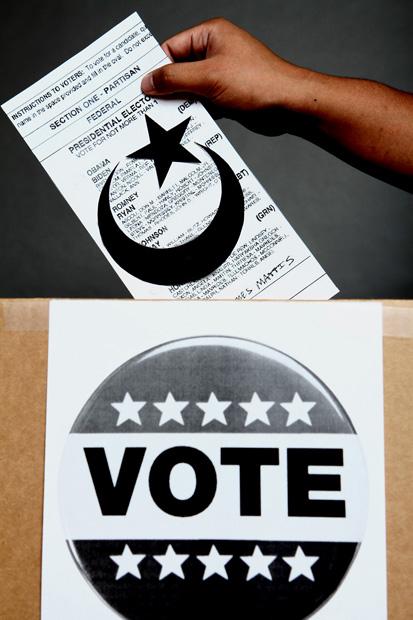
At the heels of the 2012 presidential election — which is set to finish November 6 after voters in the eight battleground states cast their game-changing votes — a key, albeit overlooked, community of citizens may have a swaying influence on the polls.
A survey conducted by the Council for American-Islamic Relations (CAIS), the largest civil advocacy group for Muslims in the United States, found that 89 percent of the approximated 2.35 million Muslims voted for Barack Obama in the 2008 election. The study further broke down the results and concluded that 78 percent of Muslim voters resided in just 10 states — two of them: Virginia and Florida — are swing states in the current election.
“In the swing states, where every vote counts, the Muslim vote can be an influential one, even if they are a minority in that state,” said Kassem Nabulsi, a CSUN professor of political science. “If they vote by large numbers, their vote will be more influential than in any other states.”
Another report, done by the Institute for Social Policy and Understanding (ISPU) in 2012, analyzed a decade’s worth of survey data on Muslim political incorporation, and found that “as minority votes become increasingly important, the data in this report suggests that the American Muslim community can be a pivotal player for some candidates in key swing states. The recent shifts in demographics and continued population growth of minority groups are making them increasingly important in American politics.”
Though the ISPU study also found that Muslims can impact the election, Rachel Howes, a professor of Middle Eastern history at CSUN, believes Muslims won’t have a significant impact on the ballots simply because there isn’t a big enough Muslim population in the United States.
“(Muslims) are such a minute percentage of the US population and they’re so demonized, that even if they do make enough noise, they’re usually ignored,” Howes said. “Even if the population of Muslims doubled, even if it went from one percent of the population to two percent, it’s still a very small percentage of people, and my sense is that they really don’t have a big effect.”
Howes said the Muslim vote may be splintered because many of the different nationalities and ethnicities that make up the demographic have different sets of values.
“They aren’t going to vote as a bloc,” she said. “They have different perspectives on different issues, and that’s another reason why they won’t have any influence. Why would it be reasonable to assume a Muslim from Palestine and a Muslim from Indonesia have the same perspective?”
Rabya Rahim, a 20-year-old junior majoring in biology and a member of CSUN’s Muslim Student Association (MSA), believes that Muslims are more likely to vote for Obama because the policies generally valued by left-wing politics are more in line with keeping peace in the Middle East, though not all will vote based on Islam’s beliefs.
“When Mitt Romney says he’s not going to legalize gay marriage, that hits home for Muslims because Islam’s stance on homosexuality is clear,” said Rahim, though she made it clear she’s not against homosexuality. “But Obama says he cares about the small people, and we as Muslims are the small people. Obama is also anti-war, which means less devastation for people in Muslim countries.”
Nabulsi said Muslims may vote democratically because conservatives are more inclined to back up Israel in the long-running conflict between Israelis and Palestinians in the Middle East.
“Many argue the natural home for Latinos, who are very family orientated, is the Republican party. Yet by a 2 to 1 margin, they vote for democrats and Obama,” Nabulsi said. “The Muslim community is most likely to be similar in this case. Their concern is about the Palestinian and Arab issues in the Middle East and the perception is that Republicans favor Israel.”
Despite religion not affecting the votes of both Rahim and fellow MSA member Fabeha Khan, a 22-year-old junior majoring in business, the ISPU report found “there is a noticeable connection between one’s level of political participation and level of religiosity and that a higher level of religiosity and mosque activism leads to a higher level of political participation.”
Khan said she would vote to reelect Obama even though some of his stances — such as his views on planned parenthood and gay marriage — go directly against her religion.
“Our Imam told us to vote for whoever represents us best, though he didn’t tell us who to vote for exactly” said Khan, 22. “ I feel Obama values students more because he wants to give out more grants.”





